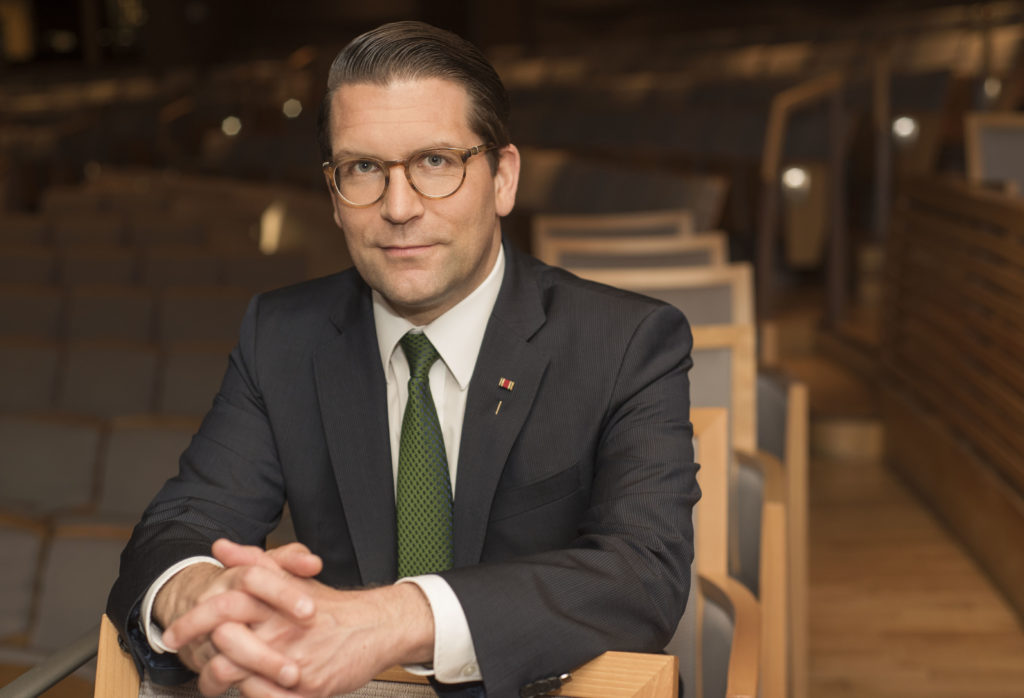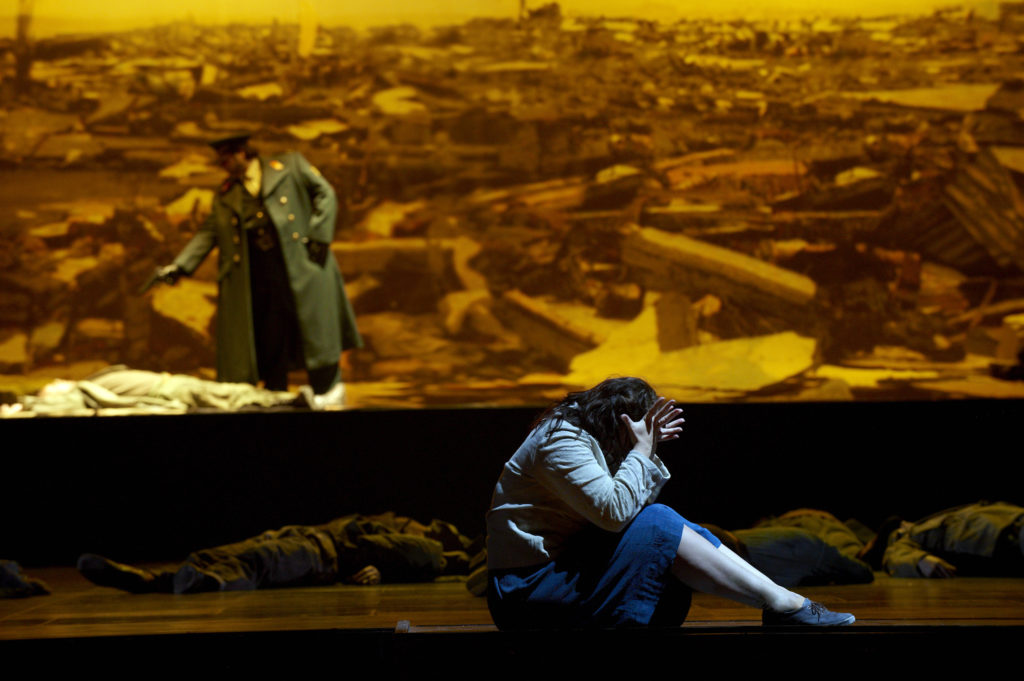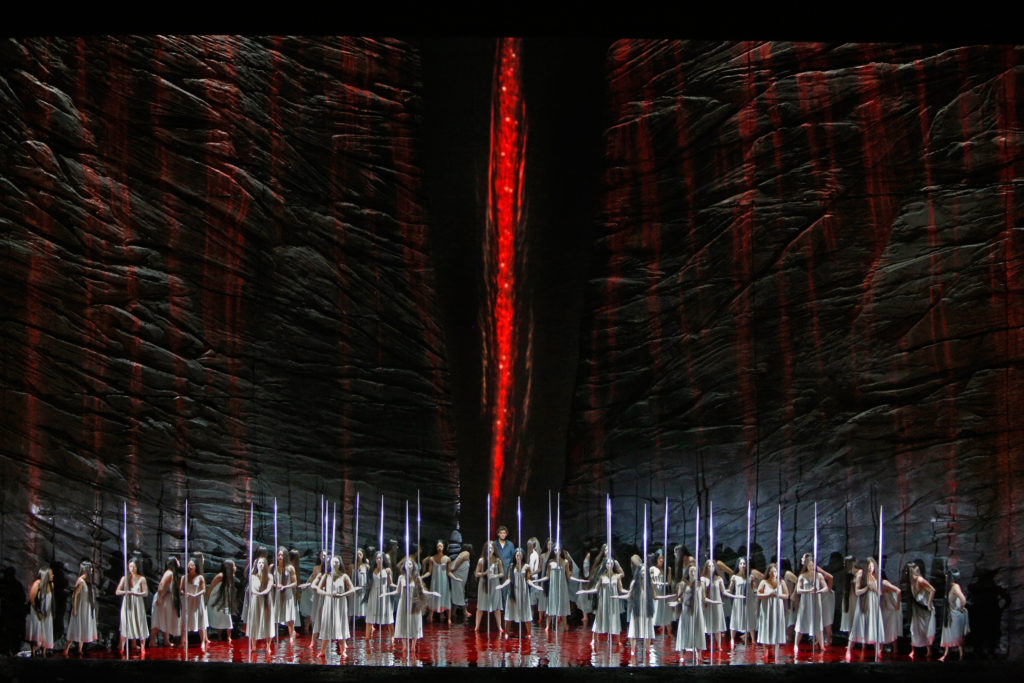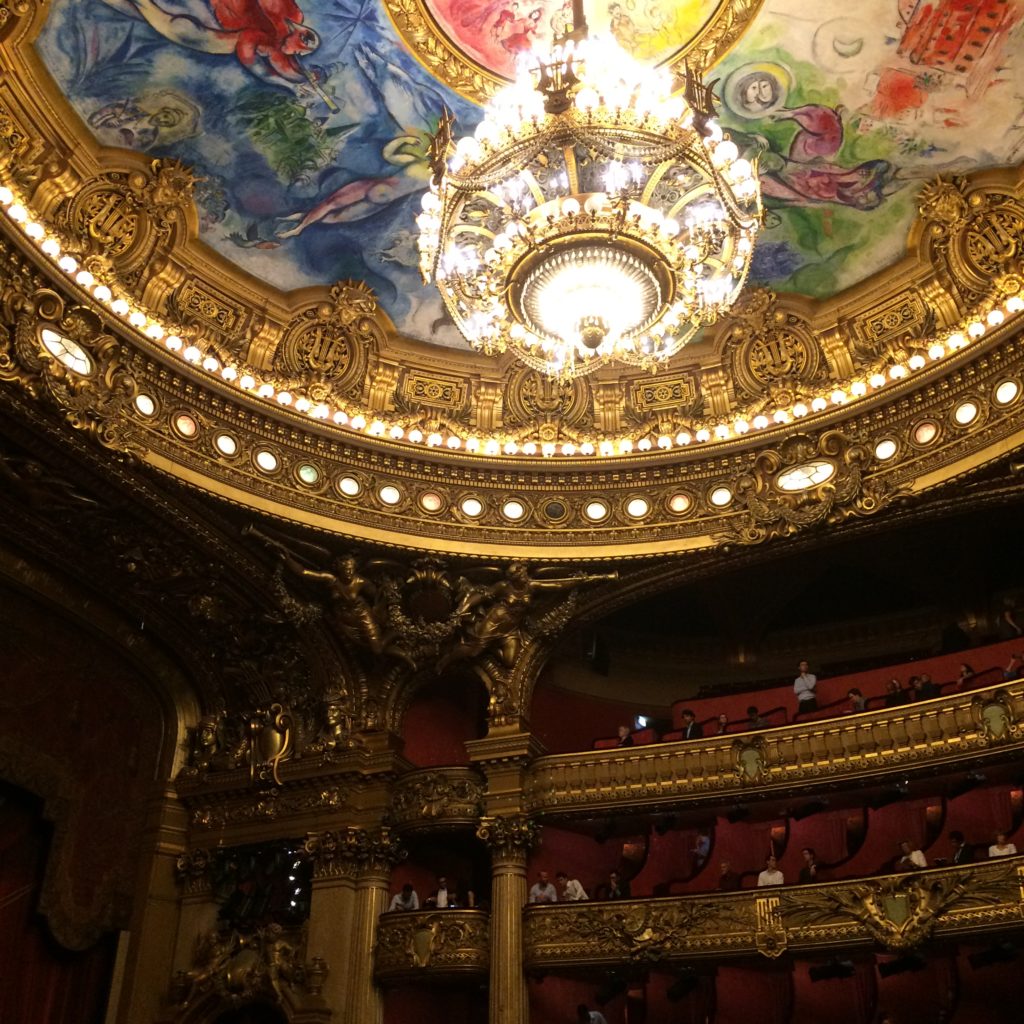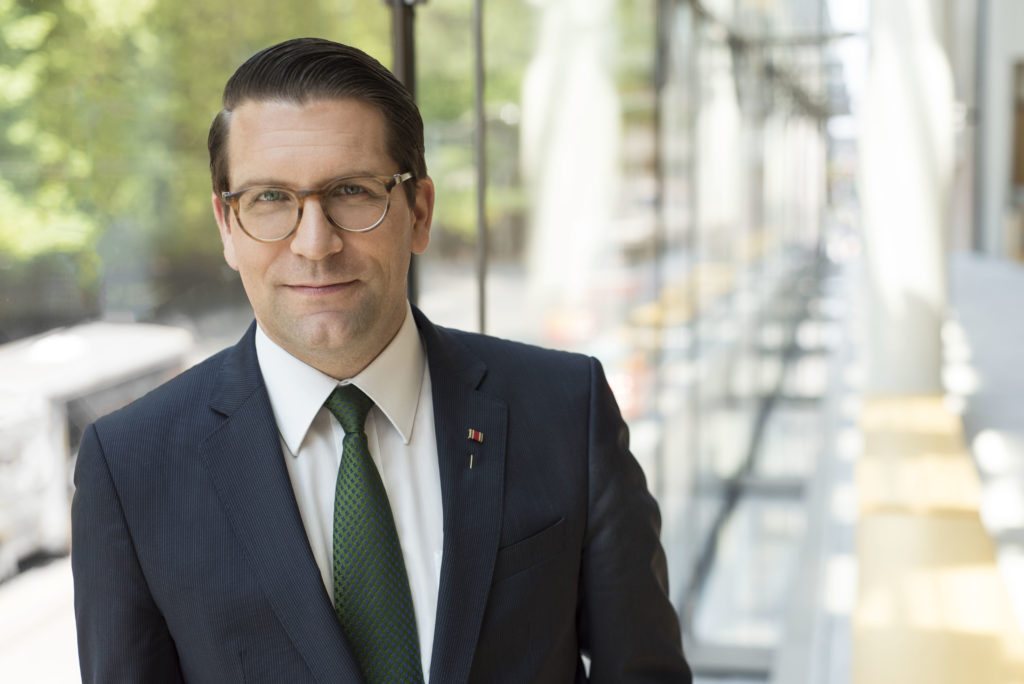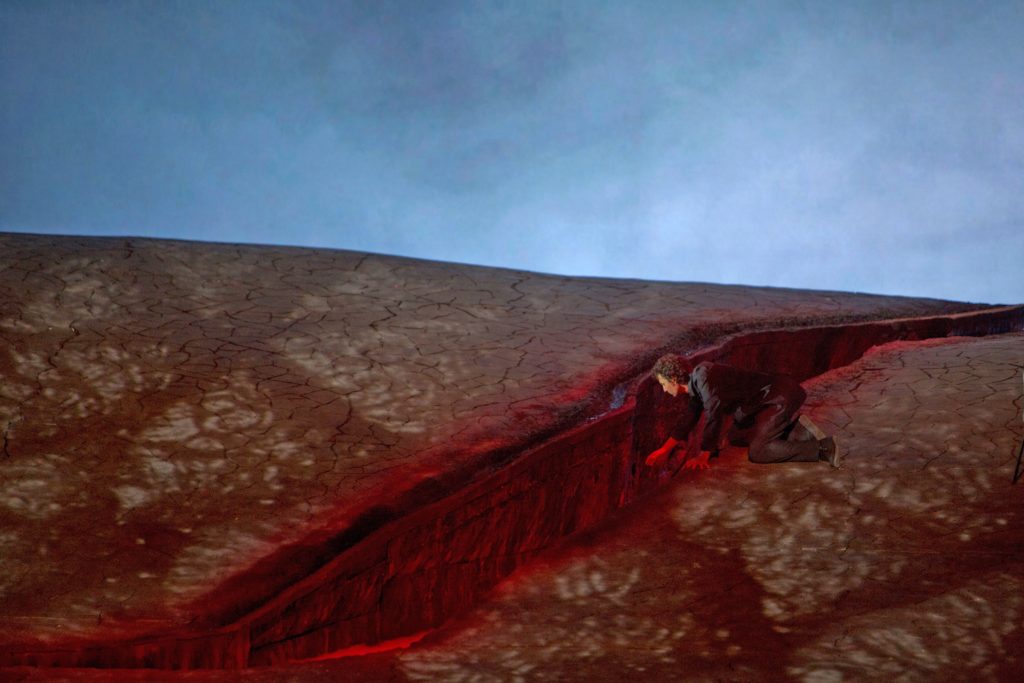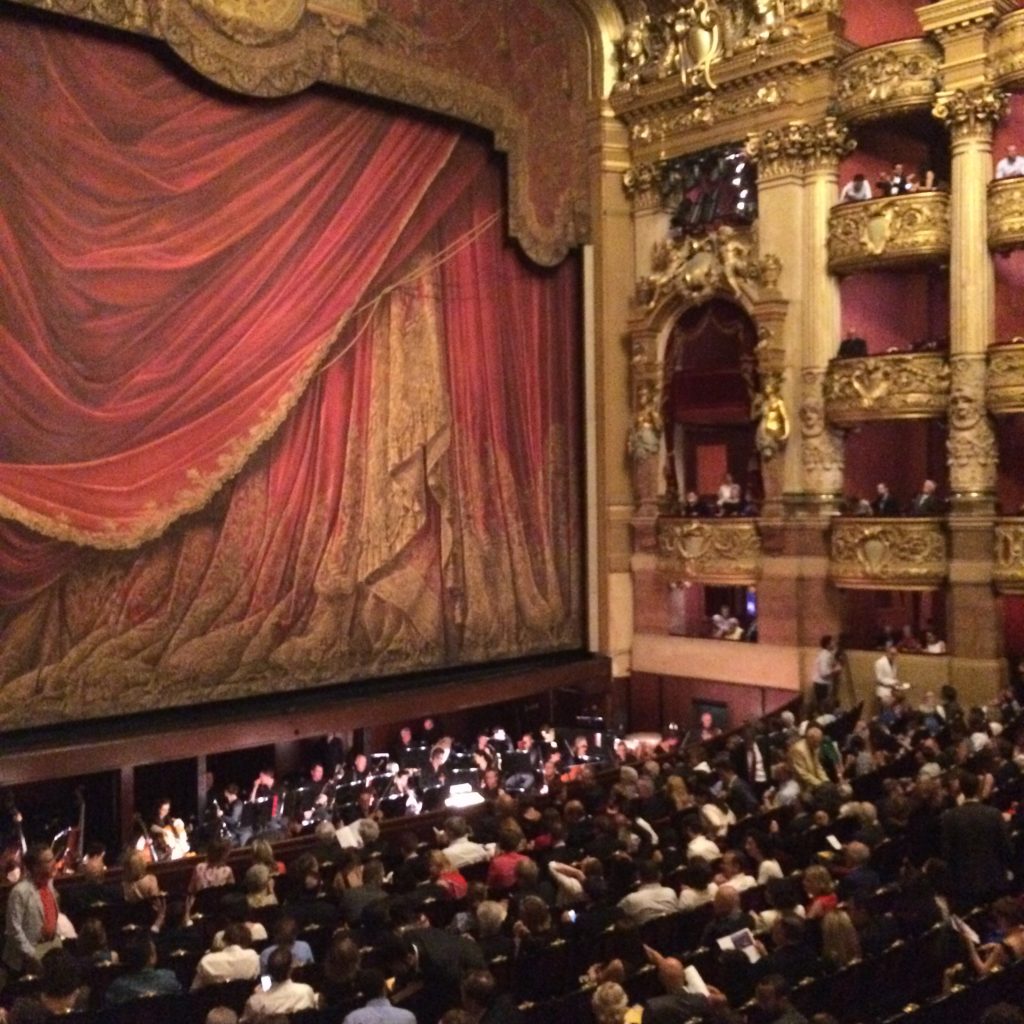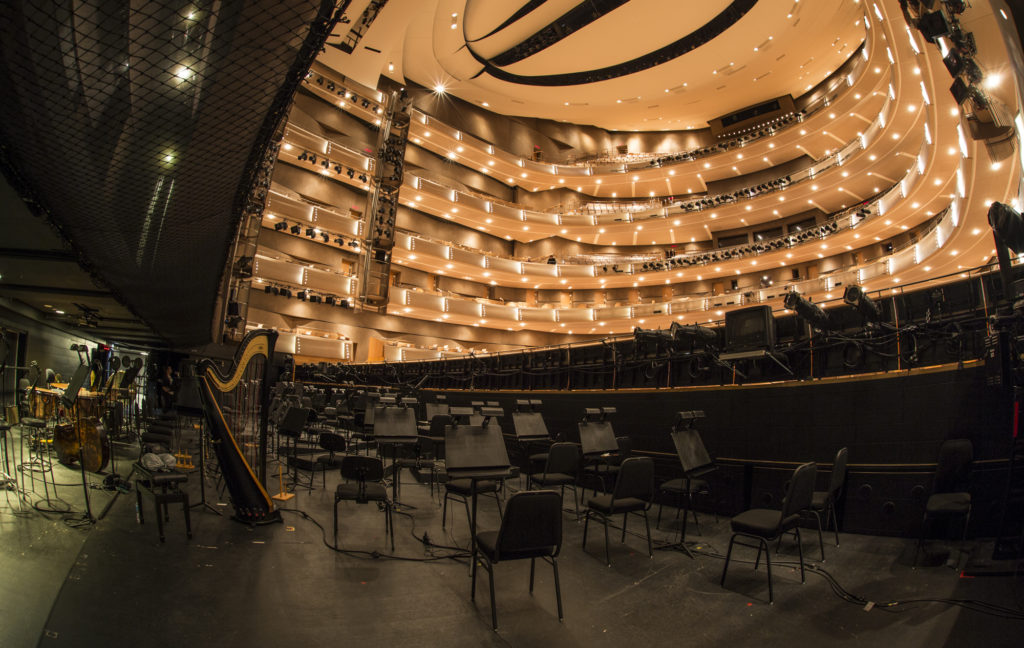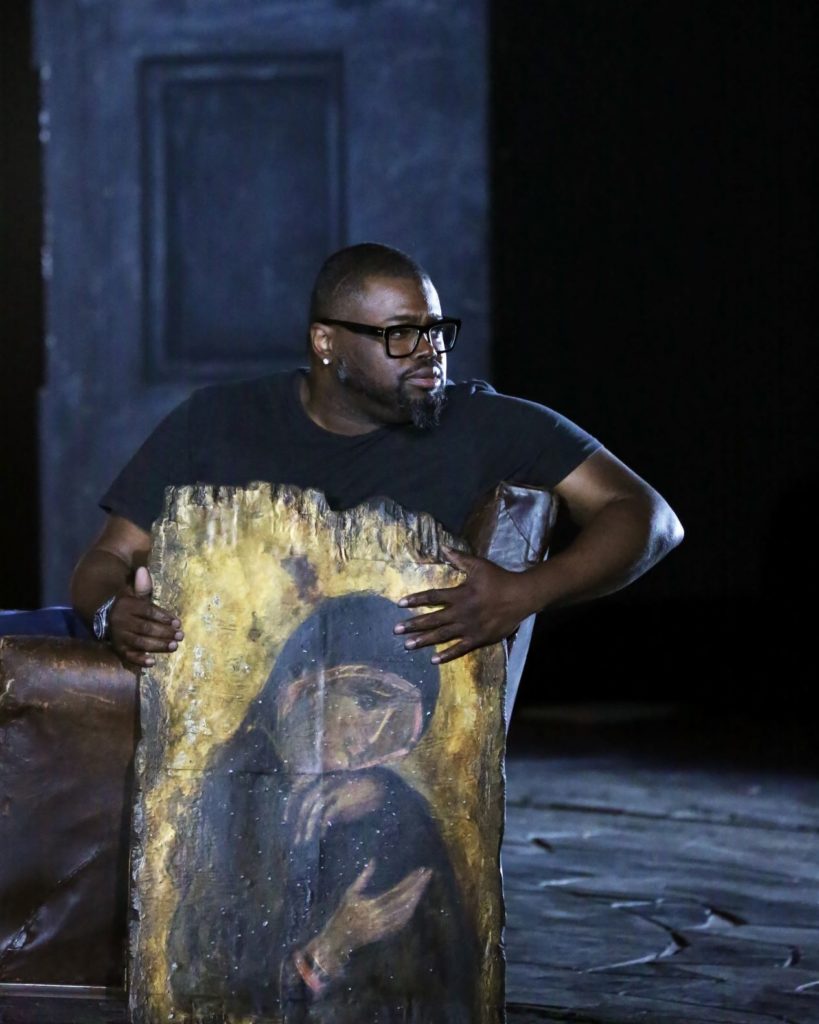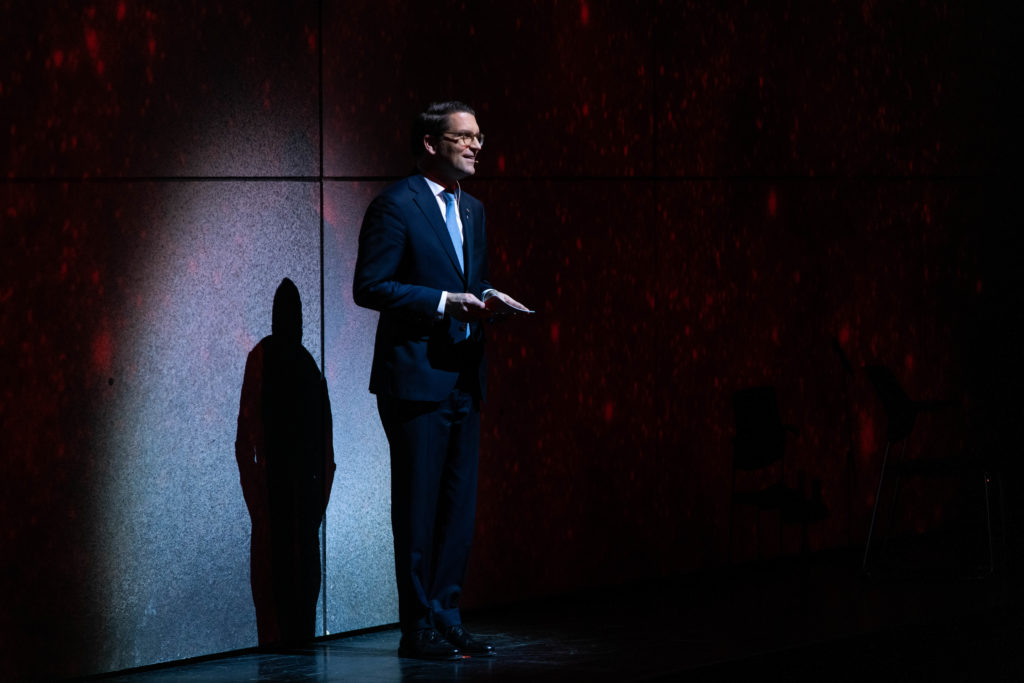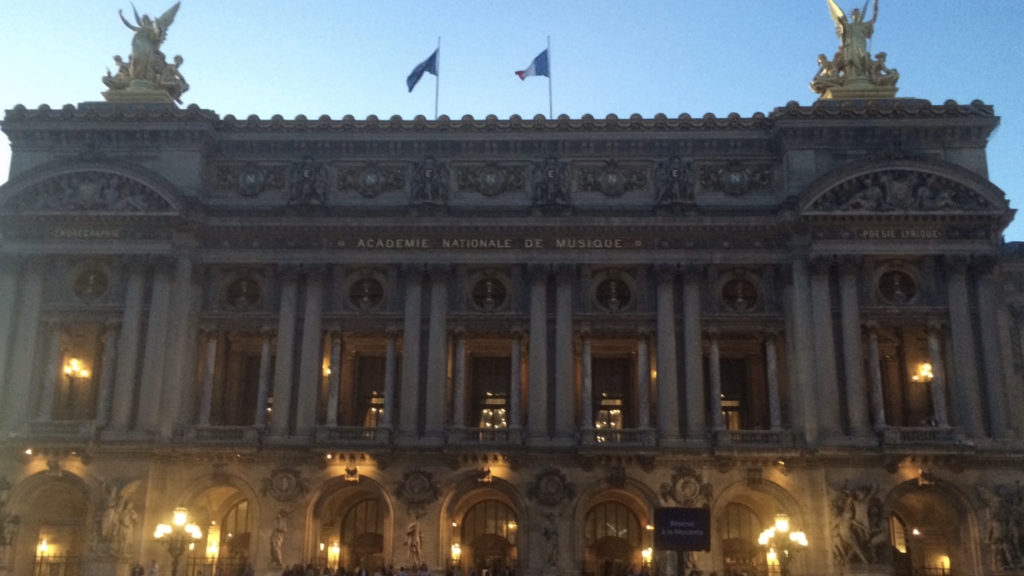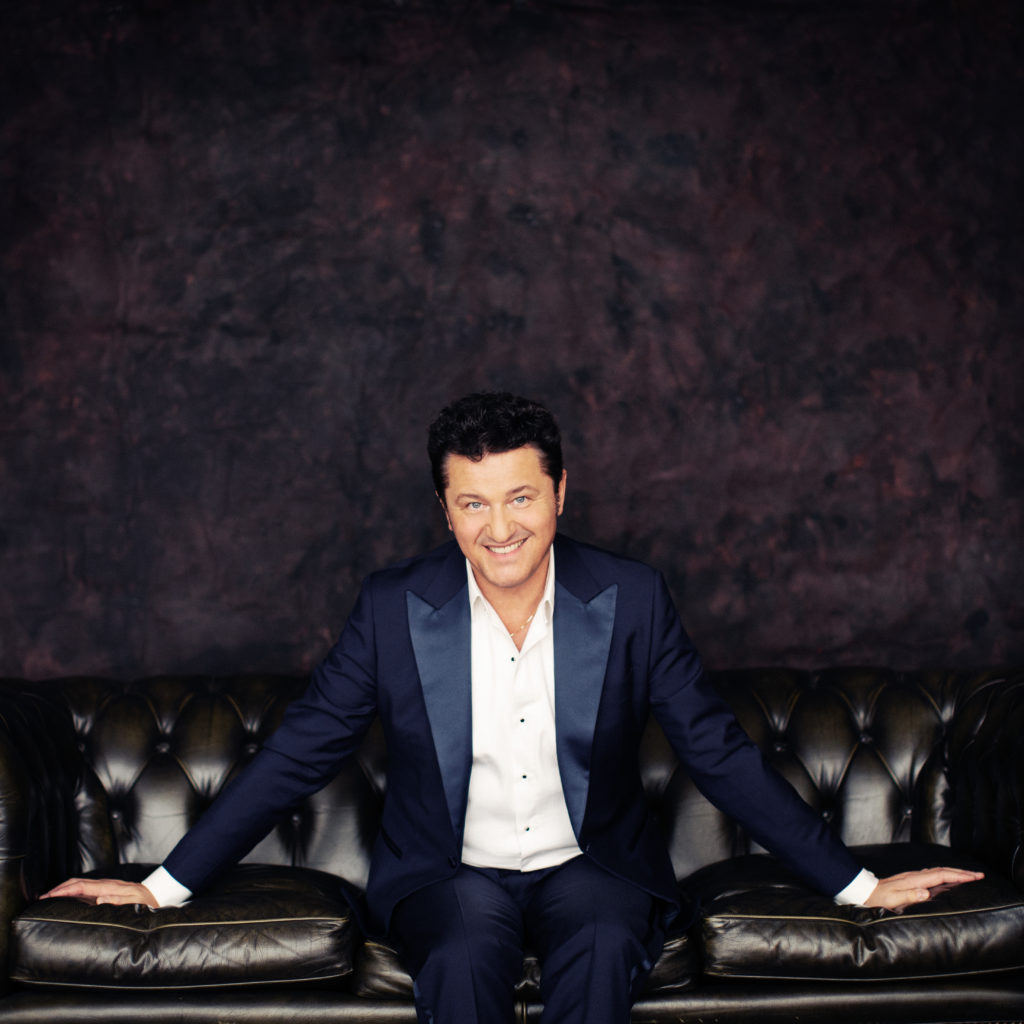
Photo: Julia Wesely
Memories of past cultural experiences have become sharper over the course of the lockdown necessitated by the coronavirus pandemic. I’ve been taking stock of those experiences through the past five months or so, recalling, with a mix of delight, sadness, and wistfulness, some of the most magical moments. In light of the activities being reported at this year’s Salzburg Festival (a reduced if arguably more potent version began August 1st and runs to the end of the month), I recalled my own experience at the starry fest in 2016, where, among other events, I attended a presentation of Faust featuring tenor Piotr Beczala in the title role. Having experienced the opera numerous times live and via recordings, I was struck at the Polish singer’s responsiveness to both the music and to his co-stars, notably bass Ildar Abdrazakov’s menacing Mephistopheles; it was as if Beczala had stepped into the score himself, and was carefully, keenly analyzing every small detail, altering his pitch and tone, the shape of his vowels and consonants, his breaths and pauses and even sighs, around Gounod’s score and the Wiener Philharmoniker’s performance of it under maestro Alejo Pérez.
This musical sensitivity and attention to detail, and to drama, have expressed themselves throughout Beczala’s illustrious career, which has included turns in the well-known and well-loved (Bizet’s Carmen; Mozart’s Die Zauberflöte; Puccini’s La bohéme), French opera (Faust; Werther; Romeo), dramatic (Maurizio in Cilea’s Adriana Lecouvreur; Vaudémont in Iolanta; Lensky in Eugene Onegin; Der Prinz in Rusalka), as well as purposeful dips into both bel canto (Bellini’s La Sonnambula; Donizetti’s Lucia di Lammermoor) and verismo (Tosca‘s Cavaradossi, des Grieux in Manon), generous helpings of Verdi (Un ballo in maschera, Luisa Miller, La traviata, Rigoletto), a taste of Wagner (Lohengrin), and delightful dashes of operetta (Die fledermaus, Das Land des Lächelns). Beczala has performed in all the major international houses, including the Metropolitan Opera, La Scala, the Royal Opera, Bayerische Staatsoper, Wiener Staatsoper, and Opéra national de Paris, to name a few. In 2014 he won the prestigious ECHO Klassik Award for Singer of the Year; in 2015, an Opera News Award; in 2019, was awarded Austria’s Kammersänger title during a run of Tosca in Vienna. In addition to French, Italian, German, and Russian repertoire, Beczala has also performed in his native Polish; he sang the pivotal role of Jontek in Stanislaw Moniuszko’s 1847 opera Halka, first at the Wiener Staatsoper late last year, and subsequently in his native Poland (at the Polish National Opera in Warsaw in February) in a production by Mariusz Trelinski. As Opera News writer Henry Stewart noted of Beczala’s performance of the aria “Straszny Dwór” (The Haunted Manor, again by Moniuszko) on his 2010 album Slavic Opera Arias (Orfeo), “(i)n eight minutes, Beczala makes a case not only for rescuing this epic aria, or even the whole opera, but for paying more attention to Polish music in general.” Beczala just did this on his recent album of songs by Mieczyslaw Karlowicz and Stanislaw Moniuszko with pianist Helmut Deutsch, Pieśni (Narodowy Instytut Fryderyka Chopina) a beautiful collection of 26 short pieces recorded in Warsaw in 2018.
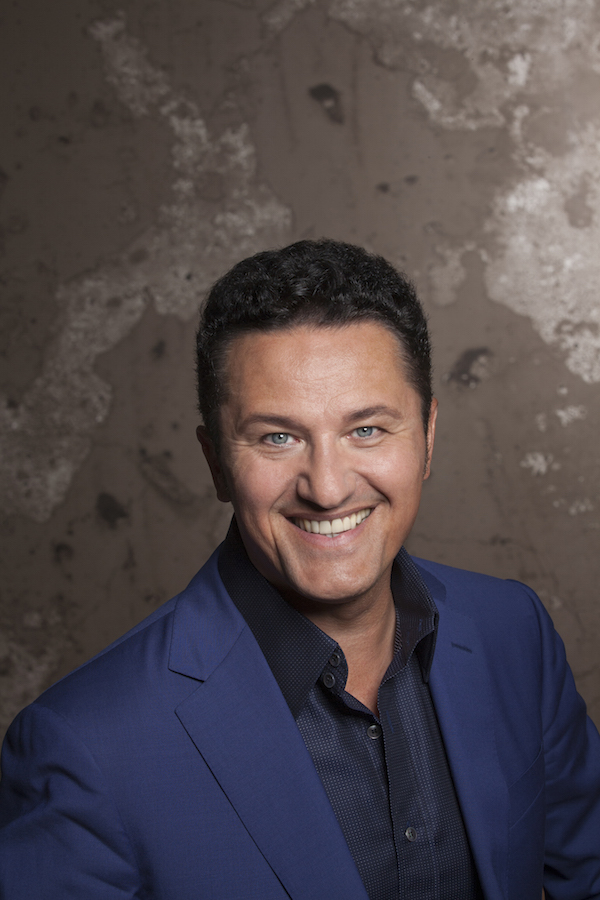
Photo: Johannes Ifkovits
Such wide variety feels natural for someone who has taken a slow, steady, and altogether smart approach to repertoire expansion. As he told Presto Classical’s Katherine Cooper earlier this year, “(m)y earlier career was much more about Mozart than Donizetti, Bellini or Rossini, but this kind of balance between bel canto singing and developing into the dramatic repertoire is so crucial. You have to guard against any signs of stress or loss of flexibility in your voice, because Wagner and verismo in particular can be very dangerous if you start singing too much of it too soon.” This deliberate pacing has paid off handsomely, and the time is nigh for a project showcasing such artistic intelligence. Vincerò! (Pentatone), released in May, features Beczala performing with conductor Marco Boemi and the Orquestra de la Comunitat Valencia. Called “a winner of an album” by Gramophone at its release. Beczala’s vocal flexibility, silvery tones, exquisite dramatic timing, and textured line readings on full display through lush arias taken from his current repertoire (Tosca, Gianni Schicchi, Adriana Lecouvreur) and likely future one(s); there are tasty verismo sounds (Mascagni, Leoncavallo) and a lot of Puccini, including the aforementioned Cavaradossi and Rinuccio respectively, here luminously joined by “Orgia, Chimera Dall’occhio Vitreo“ from the composer’s first opera, Edgar, along with selections from Manon Lescaut, Madama Butterfly, La fanciulla del West. The album closes with (as the title references) the famous aria “Nessun Dorma” from Turandot. Throughout the selections, Beczala never resorts to crooning, blasting, or forced dramatics; he truly sings the music in a way that elucidates the meaning of the text without losing the poetry of the sound in either linguistic or sonic senses. This is a singer who listens to every single thing going on around him, and here he’s beautifully supported – complemented – by Boemi and orchestra. Beczala’s reading of the famous tenor aria from Turandot, for instance, highlights his smart musical instincts; it’s passion and precision come together in a knowing show of tonal texture and control. In a word: marvelous.
Indeed, as much as Vincerò! is a riveting display of Beczala’s meticulous musical approach and watchful brand of vocalism, it is also, as I noted, something of a preview of future roles: Calaf, for instance, is on Beczala’s future performance schedule. The tenor and I spoke back in July, just prior to his appearance at the opening night of the Budapesti Nyári Fesztivál on Margaret Island (Margitsziget)’s outdoor stage. So much was still uncertain in the music world, and little has changed since then, but what with the Salzburg Festival presentation this year (albeit in altered form) and the resumption of concerts across much of continental Europe, with all the requisite safety measures in place, it’s safe to say there is some form of cultural-musical life trickling into being after a long and sometimes painful absence. Beczala performed in Salzburg recently, in a presentation of Mahler’s Das Lied von Erde with mezzo-soprano Tanja Ariane Baumgartner and the ORF Radio Symphonieorchester Wien under the baton of Kent Nagano; the presentation will be broadcast on radio station Ö1 on August 20th at 7.30pm CET. That very evening (August 20th) sees Beczala perform live at the Grafenegg Festival, in a concert featuring the music of Mascagni, Giordano, Leoncavallo, and Puccini, together with the Tonkunstler Orchestra under the direction of conductor Sascha Goetzel; that particular appearance will be broadcast on Austrian television on August 30th. This month has, it turns out, been a happily busy one for the tenor (he began August performing at both the opening and closing evenings of a special edition of the Lech Classic Festival in Austria, before going on to Salzburg), and the autumn may well prove just as busy: in September Beczala will be giving two concerts from Spain with soprano Sondra Radvanovsky and will also be giving a gala concert from the Wiener Konzerthaus, and October sees him performing in Warsaw, as the title role in Werther.
So, despite audiences being denied the opportunity to experience his Radamès (in Aida) this year at either the Festival de Peralada in Spain or at The Met respectively, there is plenty to look forward to, and for now, Beczala, together with wife Kasia, are riding out the uncertainties of the coronavirus pandemic as positively as possible: by baking, studying, and, rather happily as it turns out, singing for live audiences.
Your baking posts on instagram remind me of things my own relatives make. It’s interesting how many artists in the opera world enjoy being in the kitchen.
Well, we spend so much time between performances doing nothing. You can study and practise all the time but you have to do something normal – you can play golf or sports but it’s really a good thing to spend some hours cooking, baking, trying recipes. We also do it sometimes with friends, singer friends –cooking is a good way to spend time together.
There’s also the aspect of what you make you can’t actually see and touch, whereas when you work with food it’s a directly sensual experience.
That’s absolutely right – I remember when I did Magic Flute performances, and I was always jealous of Papageno getting the chicken in the last act. The whole house smelled like barbequed chicken, and who got it? The baritone, of course.
Yes, but you tenors get to sing things like “Nessun Dorma”…
Exactly – I’m okay with that!
Throughout this pandemic time it seems like many classical artists have learned things tangible and not, things they’re bringing back to live performance as some kind of normal returns in Europe. Is this your experience too?
We still, unfortunately, are nowhere near normal at the moment – some opera houses and concert halls are starting to go back but it really doesn’t look fine for me. Singing… I have no problem to sing for ten people, but for empty or almost-empty concert halls and houses, it’s a really difficult thing. And… well, we have to survive this time. I spoke with so many colleagues of mine, and really, we have to just stay calm, not go crazy. In my case, I was two months having vacations, and we stayed here in Poland for a couple of weeks, and I was already working last week in Vienna doing a TV project, and I’m going to Zurich. You know, some concerts that were cancelled are now back on schedule, but it’s still far away from normality. And that’s my problem, we don’t know what will happen in the fall, we don’t know… I know actually I will go do an opera in November, but until then there will may be concerts and performances but … the situation is very dynamic. It changes every day and every week.
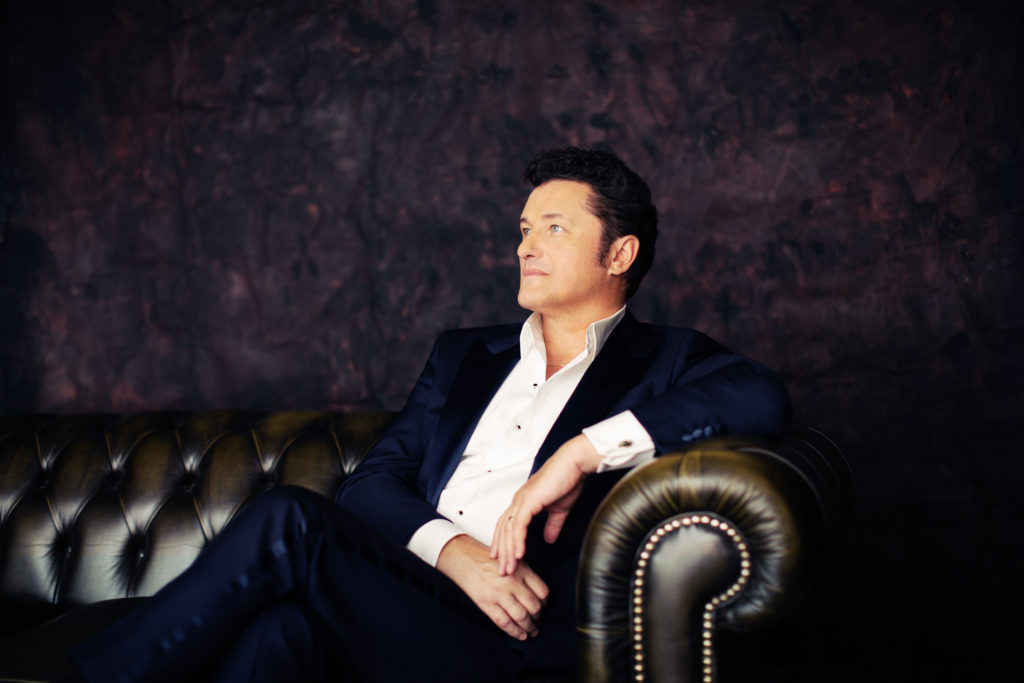
Photo: Julia Wesely
That’s hard to adjust to especially when you have things lined up for years in advance.
My schedule is full until 2024-2025, and this is now only … It’s fantastic to have wonderful productions in your schedule, but there’s the old wisdom, and it always rings true, that your schedule is right when you’ve actually done all the performances, not when you put it on the paper. Now I see this situation, and well, who knows what will happen? Everybody asks me, but I’m a singer! I am really extremely happy that summer concerts are back along with a few activities, but it’s really very far from normal.
Part of your own “normal” is performing operetta; I spoke to Barrie Kosky years ago about staging it, and I’m curious as a singer what operetta brings you creatively.
When I started 28 years ago I’d already sung operetta, in the house in Linz and later in Zurich and Vienna. Operetta was always present in the program – not many, but the big hits like Merry Widow and Fledermaus and I always enjoyed it a lot. I love all these tenors of the past, from the 1950s-60s-70s or before, and operetta was really a big part of their repertoire – Fritz Wunderlich and Nikolai Gedda and many very fantastic tenors. It’s just part of my repertoire. I did a concert with Thielemann on New Year’s Eve in Dresden and I recorded a tribute to Tauber for Deutsche Grammophon (in 2013) – you know, it’s always a good thing for a tenor to have this part of his repertoire in the voice, because it’s a very good combination of some nice vocal lines, some elegance in singing, some distance to yourself, because operetta you can’t take really seriously. It’s serious music, but you have to blink a little with one eye when you do this music.
It does require a lot of vocal flexibility…
That’s what I mean, it’s not one style. You sing Puccini or Verdi or Wagner, it’s something very stable, everything moving in one direction; operetta is more of a pretty, nice, younger sister of opera. Of course there are exceptions, like The Land of Smiles (Das Land des Lächelns), which I did in Zurich a couple years ago; it’s really a tragic story like opera, but basically it’s about love, not going very deep into the sensibility of the people on the stage. It’s entertainment but entertainment on a very high level, and on a high level vocally as well.
So you can do operetta and verismo and Lohengrin – that flexibility feels rather rare in this age of the specialist, don’t you think?
It’s a good question. Really, I’m doing this because I like it; I know exactly the differences between verismo, Verdi, French opera, Wagner, and operetta – the funny thing is, operetta is not very far from Wagner…
Really!
Of course! But these aren’t my words Thielemann convinced me to sing Lohengrin, and he said that after a couple of concerts we did in Dresden, he said, well, I have to think about Lohengrin as really not being very far from Lehár’s The Land of Smiles – of course the language is the same. More or less, it’s the same time of composition, the end of the 19th century, and well… when you take both seriously, you can say, it’s not very far away, but all these styles are pretty different. I also sing Slavic music, and it’s also a part of my repertoire, but it depends very much on the language. Last year I did Halka in Vienna.
I have friends who saw you in that – it’s quite special to stage a Polish opera.
Yes, it was a rare opportunity to sing in my own language, and in an opera at that, because my operatic language is French or Italian or German. It’s a good combination, but the key is to see the differences and to try and not sing everything in the same way. It’s like cooking: when you do everything in the same way, everything tastes the same. You can’t recognize whether it’s meat or fish or dessert.
I saw you live in Salzburg in Faust and noted how careful your sensitivity was to not only the words but the way they relate to the score– and that sensitivity was just as palpable in your album with Helmut Deutsch of Polish songs.
Recording that album was a fantastic experience – Helmut and I have a lot of plans for the future. It’s a very funny story. We met through my former vocal coach, in-person in Vienna, and then I got the idea to ask him for some concerts. It was such a positive development. Helmut of course is one of the best interpreters of Schumann and Schubert – the big German repertoire – but in his soul and his heart, he is very Slavic. When we started work on the Karlowicz/Moniuszko album, he loved it. For me it was so important to have so many good people around me, people who I can work with, even for something that is not very popular. Nobody did Karlowicz songs before – well, maybe there was something in Poland, but in the international arena, it’s’ not really normal – but now everybody knows. I’m really happy about that.
I only got to know Halka when you were in it – increasing awareness of composers who aren’t part of the mainstream opera rep seems more important than ever.
That was the idea, to bring Halka to the international opera world. In Vienna the Theatre an Der Wien is a very important house, and it was a perfect place for staging Halka. Of course it’s hard to present the world with a new opera, an unknown opera – but with this work, the music is so beautiful, and it was a nice production. It’s good people realize there’s something like this in Poland and they say, “Okay, we welcome Halka into the world” – that was the idea. And now, I’ll be happy and extremely satisfied when it becomes part of the normal repertoire in some houses; that would be a dream.
Like at the Met?
Maybe, yes, of course! I know the difficulty to produce projects like that. I spoke with Peter Gelb about it – he has to sell tickets, that’s the thing. We get sold out in Theatre An Der Wien, but five performances there equals one performance at The Met. This is the big problem. There’s a risk also for many titles that aren’t popular, but the risk could be good in the case of Halka. Let’s see.
So it’s a chicken-or-egg sort of situation…
Yes, it is. We did it once in Vienna, and again in Warsaw, and it was twice on Austrian TV, and it’s being released now on DVD. In a couple months, someone interested can say, “Okay, time for something new!” and listen to this and watch it, and then there’s some impulse to make things happen.
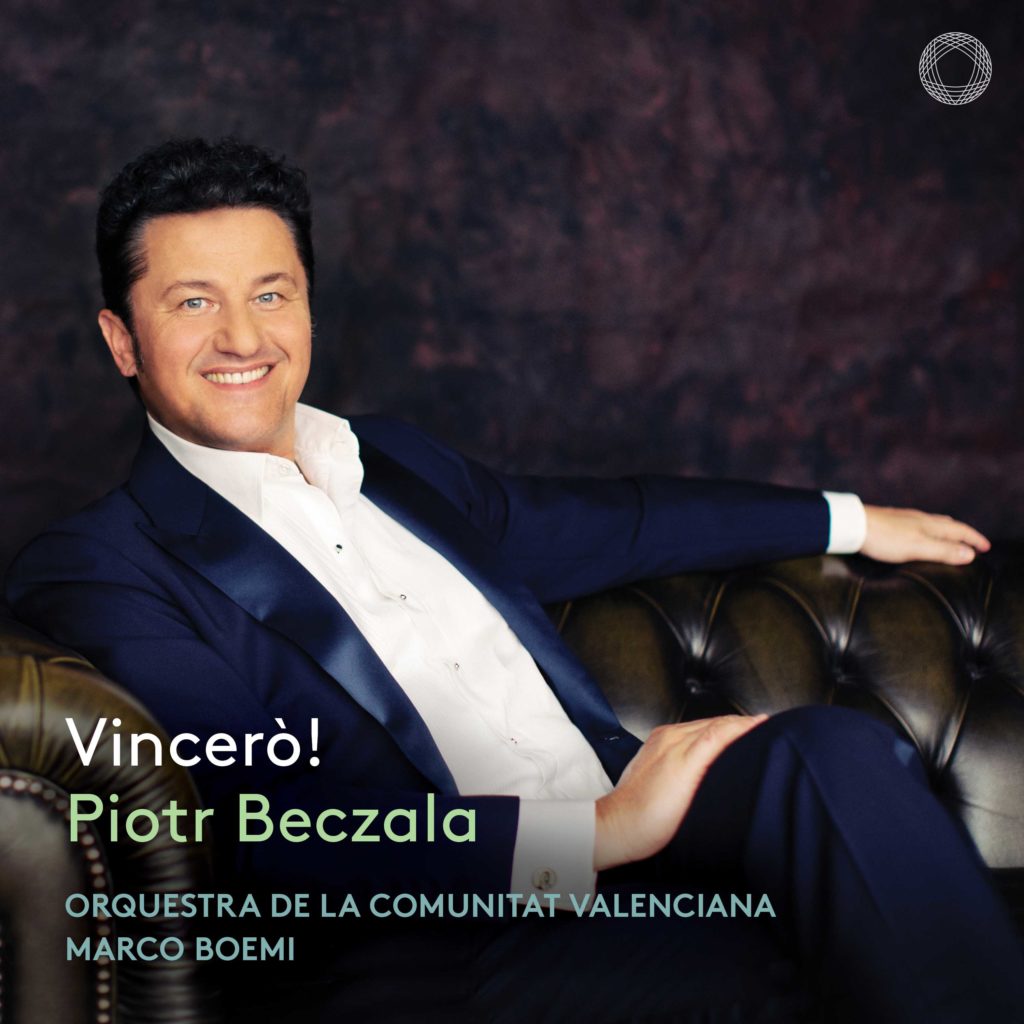
(via Pentatone)
Speaking of impulse to make things happen, your Vincero! album seems to have that quality; I kept wondering as I listened when the world might hear your Calaf.
It was the idea behind this album, to show all these arias, the most popular being “Nessun Dorma”. When I prepared myself and all this repertoire for the recording, I discovered a lot of fine music moments, different colors, and realized there are many sensitive and beautifully soft moments in Turandot. Of course the tenor has to sing with a sound of verismo, it’s like oil painting: when you are making it, you don’t have to take a big brush and do the big strokes, you need the possibility to make many small details – and this way to sing verismo is very important. I’d sung only two or three of those roles (on the album) on stage – Cavaradossi and Lecouvreur and Rinuccio, and that was twenty-five years ago – but the rest is for me questions for the future. And you mention Calaf… yes, I will do it. Most of these roles are in my plans for the future.
I kept hearing Parsifal also.
Thank you very much…. yes, Parsifal is in the schedule too! It’s a very special role; it’s not high, it’s not long, it’s not a lot to sing, but it’s very deep in terms of the meaning. The difficulty is, going through five hours of music, maybe (the opera) should be called Gurnemanz! I think in the next seven or eight years I will develop in the Italian repertoire, as well as Wagner. I really like singing Lohengrin, and Parsifal is the next logical step, and then maybe Meistersinger. I’m curious about what happens with repeating a role in different productions.
For example, Faust, for me it’s such an interesting story, with such a rich background and emotional world. I like to repeat every year or every two years a new production with this music, just to see how my voice is changing, which parts of the character I can discover again. I never get bored singing. Someone asked me a couple years ago about Rigoletto. If I’m not tired of singing it – I had sung maybe 100 performances in my life – I said, well, compared to all my wonderful colleagues like Leo Nucci or Anna Moffo, it’s nothing; Leo sang Rigoletto over 500, and it’s still fresh and not boring, Anna Moffo sang something like 800 Traviatas in her life. To keep the freshness also, not only vocally but in your head, your attitude and sense of discovery with the role, is very important in the business.
To keep it interesting for yourself as an artist?
Absolutely. You can’t be famous for fifty roles – you can’t go in history for fifty roles. You can go into history for at least maybe five or six roles; that’s the brutal truth. What I like is to discover, again and again, the same subject and to change it for different audiences – in America, Vienna, Barcelona, Paris, because this kind of working with people, with the public, is also a big part of discovering and searching for new impulses in the music
… which is precisely what you’re missing now, that interaction with a live public.
That’s so true! That’s been the most difficult part of this lockdown. We are in contact a little bit, but nothing can replace real contact with the public; that’s something absolutely special.
Your real contact will come with opening the Budapesti Nyári Fesztivál soon…
Yes, this open-air concert that had been cancelled got brought back. It’s fantastic because it’s presented as open-air on Margaret Island. I was in Budapest a couple of times but never there in that spot, but I know the the people well, the orchestra and the soprano (Andrea Rost) I’ll be singing with.
How challenging will it be to return to a live audience?
It’s like driving a bicycle: you never really forget it. When I did my last day’s recording in Vienna there was no public there of course, but there were a lot of people around, the producers and others. There are always people around in this industry, and you have to find somebody, focus on them, and sing for that one person. In the worst case, my wife is sitting twenty meters away, and I can sing to her!
You two seem like a very strong team.
We are a team, and for many years we’ve travelled together, studied together, and she knows my voice better than anyone. She is at most of my performances. Us singers need ears which are outside – we can’t really hear ourselves, and it’s so important when you have a person you can trust, to get some feedback. That’s really, really important.
As a benefit, she gets to eat your lovely cakes.
She gets the ideas for the cakes; I make them; she decorates them, and then we invite people and they have to eat it. That’s the plan, always. It’s a good arrangement. My proportions for the cake are always big, and since we are only two we can’t eat it all, so we always invite people. Normally we’d take it to the house for colleagues. It’s always a good collaboration.
That nicely underlines the significance community has gained throughout the lockdown.
Yes, precisely, we are close in our space and apartments, it’s like discovering a whole new situation. I was rather happy here in Poland when nothing happened and we couldn’t travel… actually it was a good thing. I hadn’t taken a vacation in fifteen or twenty years. When people say “I’m taking a vacation” in our industry, it’s usually only two weeks – not studying, not practising, switching off all your activities, and focusing on doing nothing. That’s what we tried to do here. But moving on, I mean, in Salzburg 50% of the programme will happen, including my concert. For a long time we didn’t know what would happen, but it was very good news when I learned it will. It’s a very important year with the anniversary, and it would be a pity to cancel it. I’ve been singing there since 1997, it’s a long-time collaboration, and I was happy to have the possibility to sing there during the anniversary year. People have struggled with the situation but we hope people will be fine. We have to just react to the situation and adjust with whatever happens.

